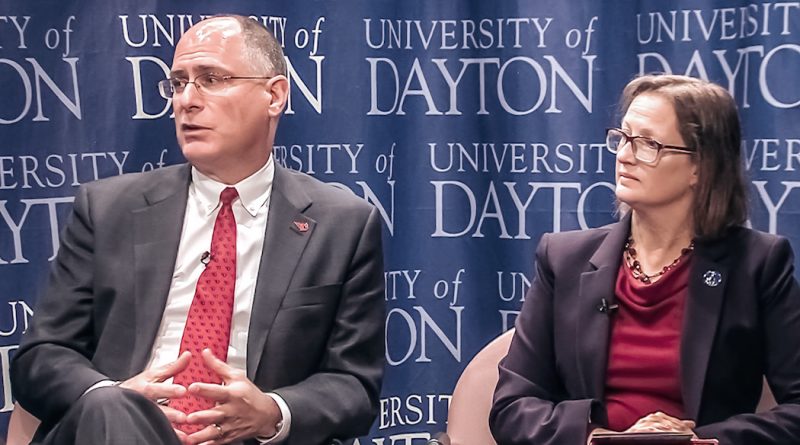7 Things To Know About Flyer Media’s Interview With Spina & Zavadil About Sexual Misconduct On Campus
Sean Newhouse
News Editor
Flyer Media interviewed President Eric Spina and Title IX/Section 504 Coordinator and Equity Compliance Officer Amy Zavadil to discuss Spina’s letter sent in October titled “On My Mind” regarding sexual misconduct on UD’s campus.
The interview can be viewed on Flyer News’ Facebook page.
Here are a few highlights from the interview:
- Spina wrote the letter due to an increase in on-campus dialogue about the topic
The university president told Flyer Media that he wrote this letter in response to many students who have expressed concerns to him about sexual misconduct on campus and how the university handles it. Spina wanted to bring greater attention to the issue.
“This isn’t just something that happens elsewhere…it happens here on our campus and is important for all of us to pay attention to,” he said.
- The Title IX/Section 504 Coordinator and Equity Compliance Officer provides resources for victims of misconduct
Zavadil explained that her job entails providing support to anyone who experiences “discrimination, harassment or gender-based misconduct” at UD, as well as promoting educational resources meant to prevent these incidents.
- Sexual Violence Trends are Reflected at UD
Zavadil explained gathering statistics about sexual violence is difficult because it is underreported. However, in a survey sent to enrolled students last fall, 26 percent of respondents said they experienced sexual misconduct, which ranged from inappropriate touching to sexual assault. Zavadil said this is consistent with national statistics on sexual violence at U.S. college campuses.
- More students are reporting sexual violence, which is a good thing
The Equity Compliance Officer told Flyer Media there has been an increase in students reporting instances of sexual violence. She said this is a promising phenomenon because the university is then able to connect more individuals to the help they need.
“What I’ve seen in my time here is an increase in individuals who are coming forward to get help,” she said.
Zavadil noted the number of instances of sexual violence has remained consistent throughout her career, but the increase in reports is a hopeful sign and is reflective of the changing climate surrounding power-based violence.
- How will the Education Department’s proposed reforms to Title IX affect UD?
Secretary of Education Betsy DeVos officially announced the proposed changes to Title IX after this interview took place. However, the plans were leaked in August.
Zavadil said her office monitors the developments in the proposed federal changes. While her job does involve complying with government rules, she stressed UD still can create policy specific to its campus.
- How Does One Report Sexual Misconduct?
Zavadil emphasized that victims of sexual assault, domestic and dating violence and stalking have a right to seek medical and mental health support, assistance from the university and the ability to report [or not report] the incident to law enforcement.
Individuals can submit a report themselves at go.udation.edu/nondiscrimination. Zavadil’s office also gets reports from RAs, faculty and public safety. As employees of the university, they are required to file a report.
After a report is filed, the Equity Compliance Office sends an email to the student with the rights and resources available to them so that they can make an informed decision about what course of action to take.
If students wish to seek confidential help, they can reach out to the counseling or health center. While those employees will not file a report, they still do provide information regarding victim rights and available resources.
- A Call to Action
Both Spina and Zavadil highlighted that continued discussion about this issue is integral to eliminate sexual violence on UD’s campus. They also said the way sexual misconduct has been talked about nationally has improved.
“I think we have progressed as a society to talk about sexual violence,” Zavadil said “[It’s] not about sexual activity; it’s about power and control over another human being.”
Spina wrote in his October letter that every member of the community must work to combat these occurrences that conflict with the university’s values.
“If we truly respect the dignity of all people, then it’s up to all of us to create a campus culture that consistently reflects that, or what we say and feel about ourselves is meaningless.”

